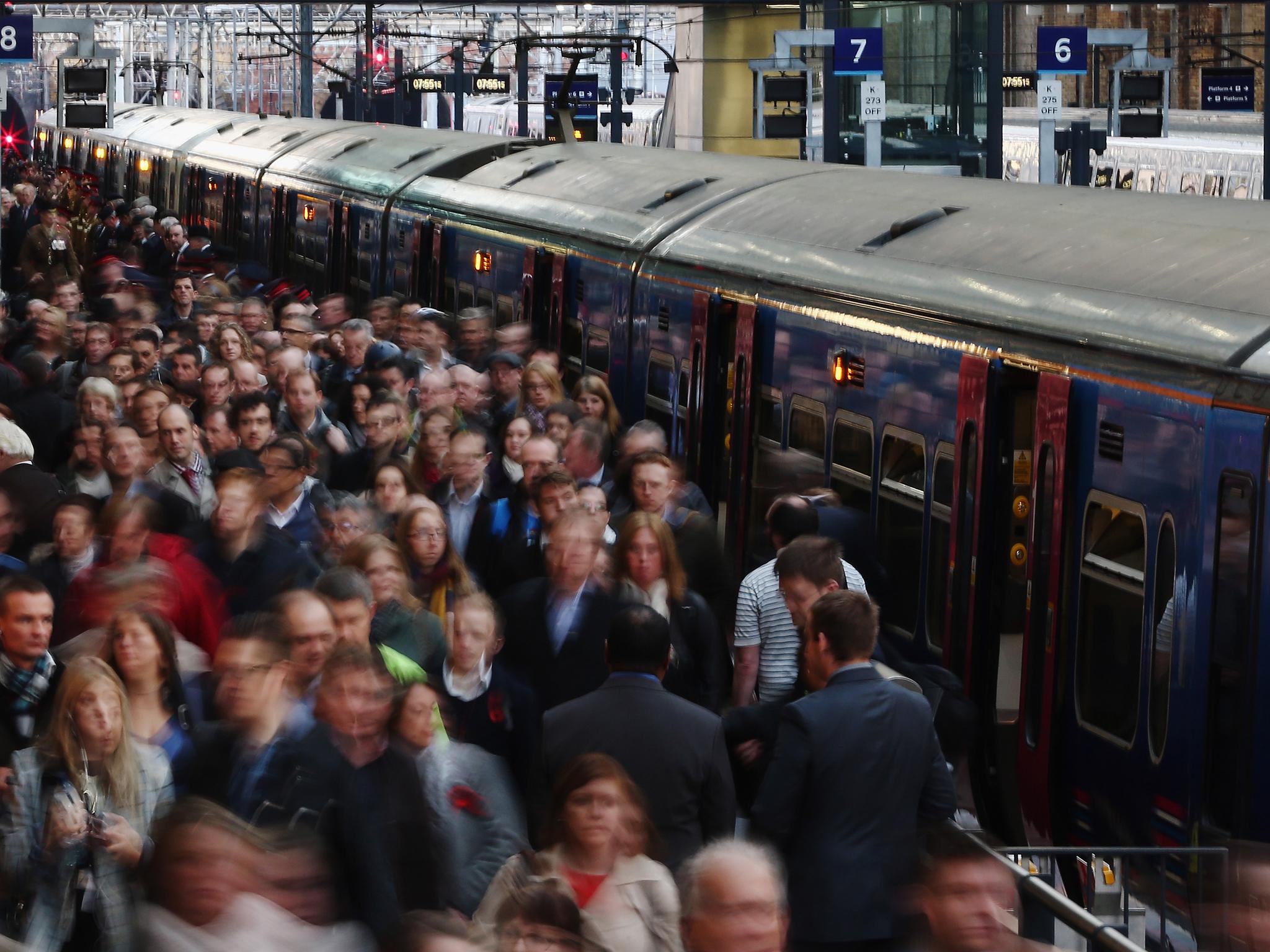Our railways are a disaster – but nationalisation would only make the situation worse
'Nationalisation' is a word that falls readily form the lips of Jeremy Corbyn and others with short memories. Under British Rail from 1948 to 1994, the UK's rail network was notorious for poor service, over mighty unions and government interference

No way to run a railway would seem the best verdict on the Go-Ahead Group’s management of the Southern rail service, if that’s the correct word for it. Almost everything about it is dysfunctional, although not all of that can be blamed entirely on Go-Ahead, the private sector firm that has been running it and which has announced a group profit figure of some £100m (it runs buses and other rail services too).
Allocating blame is often a mug’s game, but in the case of the Southern Railway, equity to the long suffering passengers demands some sort of apportionment; and in understanding this operation’s problems we might come closer to some solutions for the wider issues that plague British public transport.
First, the ownership structure of Southern is opaque. Twenty years ago, when the railways were privatised, one obvious point of the exercise was to take their ownership control out of the hands of the state. Southern shows precisely why this was a forlorn hope. In common with much else that moves on wheels, Southern is part-owned by a state entity, but in this case it is the French state rather than Whitehall calling the shots.
It is hardly alone; sharp-eyed visitors to London will notice the logo of RATP, the nationalised Paris Metro, on the side of the familiar red buses, while passengers on board Trans Pennine, local Nottingham and London Docklands services will be, unknowingly, guests of SNCF and the French government. Nothing wrong with that, in principle, but the split ownership and control of these operating firms, with added trans-national complexity, can make for sclerotic decision making, as seems to be the case at Southern, which has an even more convoluted shareholding structure than most.
Second, its management pays itself too much, whatever view is taken of the blame. In the end management does have to take responsibility for the fortunes of its services, and if it cannot deliver it, it should not receive lavish awards. Remuneration for the bosses at Go-Ahead may be more or less in line with the market, and the chief executive has foregone a bonus, but there is no obvious sharp penalty for failure to keep the service running as it should be. That is wrong and offers, obviously, little incentive to get things right.
The third arrival at Platform Failure is the Government. Unusually, Southern has a financial framework that means it gets its revenues even if, theoretically, it has no passengers. Thus the usual dynamics of business are lost, and the Government’s position is compromised. How can it be hands-off when it, and in fact the taxpayer, has such a stake in its fortunes, but without any ownership stake? Strange indeed, and something that the Transport Secretary Chris Grayling would find tricky to justify to irate voters in his Epsom constituency, served, with slow-moving irony, by Southern. It also means that Southern, uniquely, is able to withstand strike action financially.
Hence, perhaps, due to its intransigence, the suspicion is that the government wishes it to pioneer efficiency measures for the wider network; hence the trouble. Still, seeking a better way to run the railway is in itself no bad thing.
Bringing up the rear, appropriately in the guard’s van, come the unions, determined to prevent new working practices on Southern trains. A skilful PR exercise has persuaded many that safety is their prime concern rather than simply protecting the position of their members (which is no disgrace, after all). The management allege the train drivers throw too many “sickies” and are quick to go on strike. That is obviously true, and Southern would not be the first public transit system to feel the heat of the RMT. Even after the late Bob Crow, the union retains its keen instinct for militancy and skill in causing disruption.
The answers, then? “Nationalisation” is a word that falls readily from the lips of Labour leader Jeremy Corbyn and others with short memories. Under British Rail from 1948 to 1994, the UK’s rail network, the first in the world after all, was notorious for poor service, over-mighty unions, Government interference and, before the British culinary renaissance, unacceptably bad sandwiches. Fundamentally the railway has not for a century been able to generate sufficient revenues or profits to guarantee the heavy investment it needs. Hence the Beeching cuts of 1963, hence chronic underinvestment over many decades and hence “ram-packed” carriages.
The invention of the delivery lorry and wider car ownership form the 1930s derailed things, and the type of ownership and regulation has never made much difference to those abiding truths. The serpentine model chosen at privatisation of splitting the track from rolling stock operators was probably flawed; but fixing that wouldn’t be anything like the whole answer.
The choice, at base, is very simple; should the railways be mostly paid for by those who use them, via ticket prices; or with a more substantial subsidy from taxpayers, many of whom may not use the trains much, and be poorer than the relatively prosperous commuters of the Surrey stockbroker belt? Railways, without subsidies, usually lose money, whoever owns them or operates them.
A simple truth in a complicated business.
Join our commenting forum
Join thought-provoking conversations, follow other Independent readers and see their replies
Comments
Bookmark popover
Removed from bookmarks